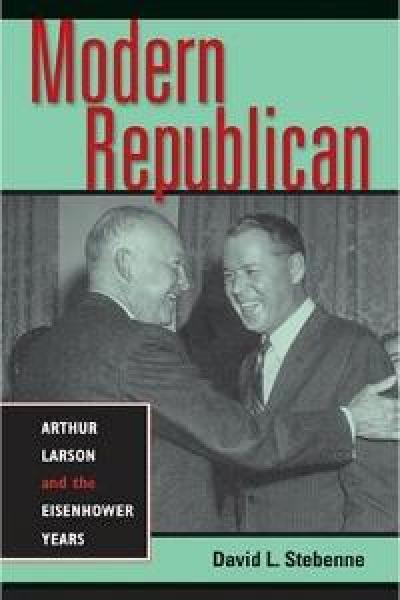Modern Republican: Arthur Larson and the Eisenhower Years

Stebenne, David
The biography of the chief architect of moderate conservatism, the forerunner of "compassionate conservatism"
"This book is an original, important, and interesting contribution to the literature on President Eisenhower and on American history in the years before and after World War II. It will make a difference in the way historians and political scientists think about a critical period of national history. Too few books have that sort of impact. . . ." —Michael A. McGerr, author of A Fierce Discontent: The Rise and Fall of the Progressive Movement in America, 1870—1920
Arthur Larson was the chief architect of moderate conservatism—one of the most influential and least studied political forces in U.S. history. During the Eisenhower administration, Larson held three major posts: Under Secretary of Labor, Director of the United States Information Agency, and chief presidential speechwriter. In each of these roles, Larson's most important achievement was to explain clearly and cogently what the administration stood for on matters foreign and domestic. Larson's views were put forth most forcefully in A Republican Looks at His Party, published in 1956. Larson and his book provided the Eisenhower administration with "the vision thing." His limitations and disappointments also help explain Eisenhower-era conservatism. They illuminate the extent to which there was a gap between what the "Modern Republicans" believed and what they said and were able to accomplish, and why those beliefs, values, and achievements did not always mesh. Larson's ultimately unsuccessful efforts to prevent the rise of the New Right are especially enlightening, for they help to clarify why the party of Dwight Eisenhower in the 1950s gradually became the party of the more conservative Ronald Reagan by the 1980s. Modern Republican will enlighten readers who want to understand more fully the historical context of today's divisive political arena.
Investigators
Filters: 2006
